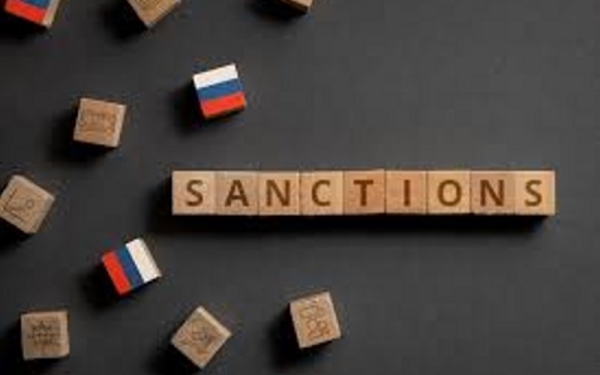Kommersant (Russia): Management under sanctions

Economist Alexander Zotin in his opinion piece published in Russia’s main business daily discusses possible twists in the pushback against sanctions pressure on the Russian Federation
Managers, shareholders, the state, employees, customers. Balancing the interests of these groups should help the economy grow and develop. But what looks good in theory often looks very different in practice. Institutional theory pays a great deal of attention to the tension between the principal (owner) and the agent (executive manager). But this is by no means the end of the management problem. For example, during the recent forced sale of the Swiss bank Credit Suisse to its competitor UBS, the Swiss state, represented by the banking regulator Finma, circumvented the interests of shareholders, depriving them of the opportunity to vote on the deal.
Russia has its own tensions. As we have written before, Russia hasn’t actually developed a CEO class in the Western sense. This is one of the problems facing the Russian economy, where only shareholders and company founders are still seen as decision-makers.
The state is accustomed to communicating only with owners, often taking into account the interests of employees, but so far top managers haven’t played a large role in this configuration.
An additional dimension – sanctions on the part of unfriendly countries (the first large packages of sanctions appeared in 2014 and were stepped up dramatically in 2022) – has been imposed on what was already a weak managerial class in Russia over the past 30 years.
The unprecedented sanctions pressure on Russia has prompted restructuring in many areas: the transformation of foreign economic relations and the rethinking of industrial, monetary and fiscal policy.
But sanctions are also having an impact on corporate governance. The role of owners and managers in relation to their business is changing.
AdvertisementHere we have an entire matrix of possible scenarios: the first is when both the company and its owners / top managers are not subject to sanctions; the second is when the owners / top managers are under personal sanctions, but the company is not; the third is when the owners / top managers are not subject to sanctions, but sanctions have been imposed on the company; the fourth is when both the company and the owners/managers have been sanctioned.
The first option can be ignored; the fourth one is also rather simple: there’s nothing left for top managers and owners to lose in that scenario. This is the case, for example, of Alexey Mordashov, head of Severstal and its main shareholder. The third scenario comes down to the personal choice of managers and shareholders. However, we haven’t seen mass exoduses of managers from sanctioned companies, with the exception of the foreign “Varangians”.
Examples from the fairly common second scenario are indicative. As a rule, managers placed under personal sanctions leave their company to avoid creating additional risks for it. That’s what happened with Vladimir Rashevsky, who left SUEK’s Board of Directors and his post as CEO of EuroChem; Dmitry Konov, who left SIBUR; Andrei Guryev, Jr., who stepped down from his post as CEO of PhosAgro; Alexander Shulgin, who left his post as CEO of OZON; and Tigran Khudaverdyan, who resigned as managing director of Yandex; and a number of others.
But there are also exceptions. For example, the head of Norilsk Nickel, Vladimir Potanin, remains its president despite personal sanctions. Economists have explained this decision by the fact that the company is a global player in the nickel and particularly the platinum markets, a fact that likely protects it against sanctions. However, the situation is actually more complicated: Norilsk Nickel is part of the Interros holding, which has its own managers — and it, in turn, is under sanctions, which could create additional risks for the international operations of the non-ferrous metals giant.
Another aspect of the impact of sanctions is the operations of a particular company. For example, the sanctioned banks Sber and VTB (together with their CEOs) have, in a business sense, adapted well to the new environment. Since their operations are focused on the domestic market, they in a sense have actually benefited from the withdrawal of foreign banks from Russia.
Companies that previously borrowed outside the country are now doing so with the help of Russian banks. But for companies (and their managers) working mainly in the foreign sector (oil and gas and metals and mining), the risks have increased.
Not only is it necessary to restructure all foreign trade logistics as a result of direct sanctions, but there are also risks of extraterritorial secondary sanctions.
An important case from international practice is the detention of the top manager of the Chinese telecommunications giant Huawei. In December 2018, at Canada’s Vancouver Airport, the authorities arrested, at the request of the United States, the CEO and daughter of Huawei founder Meng Wanzhou and requested her extradition to the United States (Meng’s plane was flying from Hong Kong to Mexico with a stop in Vancouver). The accusations against Meng claimed that a company controlled by Huawei was doing business with Iran, while HSBC bank was involved in making payments, and some transactions passed through US clearing. That said, Huawei itself was not under sanctions at the time of Meng’s detention; sanctions were imposed on the company later, in 2019.
Meng’s detention was significant for three reasons. First, Washington took action against a representative of China’s top elites. Second, in similar cases of secondary sanctions (that is, not directly against Huawei’s CEO but against Iran), the United States, as a rule, previously took action against companies, but managers were not touched. Third, and most importantly, it turned out that US allies were willing to break their own laws.
The United States used Canada to arrest Meng. But the actions of the Canadian authorities appear to have been illegal from the point of view of international law. Canada had no sanctions in place against Iran similar to those imposed by the United States. Thus, a basic principle of extradition law that applies in practically every country in the world was violated: a person’s actions have to be illegal both in the country requesting extradition and in the country where they are currently located (not to mention the fact that Meng did not have access to a lawyer in the first hours after her arrest). As a result, Meng spent nearly three years under house arrest and was released to return home only at the end of 2021.
In theory, Russia’s Ministry of Foreign Affairs along with other federal agencies could get involved in the legal battle to protect the rights of Russian companies and their managers. Perhaps some kind of intergovernmental agreements through BRICS or other organisations are required.
For example, pushback against primary and secondary sanctions could be used as the basis to expand BRICS itself. So far, however, little has been done in this area. Therefore, the priority at the moment for any Russian top manager should be to make their companies as secure as possible (even in business relations with friendly countries), and the priority for companies should be to ensure the security of their staff and managers.
Share this article:



